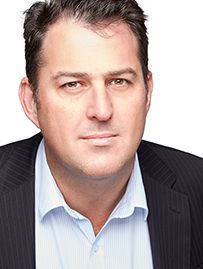
The Sage: We know finance is a shark tank – is this really the time to undo consumer protection?
 The Sage: the column that tells you what’s really happening (sometimes before it does!)
The Sage: the column that tells you what’s really happening (sometimes before it does!)
Just how much protection do we need from the sharks of finance? Clearly the government thinks we have too much. One minute, after the shocking revelations of the Hayne Royal Commission, we have a raft of legislation to protect the consumer from the predatory tactics of banks operating like loan sharks.
Now we have a global pandemic to contend with, predatory lending is OK again. Because we need you to spend the dollars you earned from your boss, who has managed to survive the pandemic, or those you got from the government’s handouts.
So last week, the Morrison government removed the responsible lending obligations in consumer protection legislation.
What does that mean?
Well, to put it crudely: before the pandemic we could afford to put consumer rights first; now, we really need people to spend to get our economy going – whether that money is earned, borrowed or ripped from super.
Treasurer Josh Frydenberg said it was important that “unnecessary barriers” to obtaining credit were removed so that consumers could spend and businesses could invest and create jobs.
Next week’s budget mantra is going to be: jobs, jobs and jobs.
So, as if we’ve forgotten why we created them, we’re removing the consumer protections that came out of an era when banks and non-bank lenders reigned supreme and virtually without rules.
“What started a decade ago as a principles-based framework to regulate the provision of consumer credit has now evolved into a regime that is overly prescriptive, complex and unnecessarily onerous on consumers,” Frydenberg maintained.
“The government will simplify the system by moving away from a ‘one-size-fits-all’ approach while at the same time strengthening consumer protections for those who need it.”
The value of personal responsibility and accountability should remain central to society, said the Treasurer.
So what does all that mean? Well, lenders can now rely on the information provided by the loan seeker instead of having the responsibility to make sure it’s actually true.
Sounds fair, right? Except where the loan maker is incentivised to make the loan, not make a responsible decision which takes into account the circumstances of the client.
How quickly we forget what Hayne uncovered: a world where getting the deal was what counted, not what happened afterwards.
Finance house JPMorgan is sceptical: “While an improvement in system loan growth would be a positive, there are limits to how much loan growth is desirable, and we remain concerned about the impact of low rates and mortgage competition on profitability in the mortgage market.”
The Hayne Royal Commission highlighted many abuses, and lenders have only just made changes to take account of them. Now, we’re dismantling the regulations Hayne instigated.
Suddenly, your expenses won’t be counted as so important in assessing your ability to repay a loan.
The National Consumer Credit Protection Act, the Australian Prudential Regulation Authority regulations and the Banking Code of Practice still apply.
But we have just undone a lot of what was put in place during an era we decided was wrong.
Alan Kirkland, who heads up Choice, said: “We got rid of the idea of ‘buyer beware’ in consumer law decades ago. To make it the principle that guides lending in the middle of a recession has disaster written all over it.
“Piling more debt onto people who can’t afford it has never solved an economic crisis.
“Products like credit cards are complex. That’s why banks make so much money out of them. Banks are in a much better position to assess a person’s ability to repay, so they need to shoulder some of the responsibility.”
Fiona Guthrie, CEO of Financial Counselling Australia added: “As we learnt to our cost during the GFC, weaker lending standards mean people will be loaded up with as much debt as possible. There is significant profit to be made in pushing borrowers to the edge.
“Removing responsible lending obligations will free banks up to aggressively push credit onto their customers.”
If anyone needs proof of what’s really happening, a recent report said Australians are “shopping their way out of the sharpest economic downturn since the 1930s”.
According to The Australian, “the country’s biggest retail bank said a surprisingly strong lift in spending by its millions of card customers over recent weeks suggests the economy will buck pessimistic Treasury forecasts and expand strongly through the September quarter”.
Commonwealth Bank head of Australian economics Gareth Aird said he now expected real GDP would grow by 2 per cent, versus an earlier forecast that the economy would stall.
“We now expect real household expenditure to post a chunky 5 per cent increase over the September quarter, following the 12.1 per cent contraction in the June quarter.”
In an economy heading for bad news in the next quarter, with rising unemployment and falling government assistance, that doesn’t bode well for a happy Christmas and prosperous New Year.
According to The Australian, banks are preparing for a wave of loan defaults by recruiting and redeploying thousands of staff to their hardship units.
The Australian Financial Complaints Authority, is poised for an avalanche of complaints.
Everyone says lending rates are going down, down

It’s looking increasingly certain that the Reserve Bank of Australia will lower interests rates, though whether that will coincide with the Budget next week is uncertain.
The official cash rate is already at a record low 0.25 per cent level.
Bankers Morgan Stanley have suggested the Reserve Bank will ease rates next February to 0.1 per cent.
Westpac chief economist Bill Evans believes it will happen next Tuesday in what he called a “Team Australia” moment.
Of course, if you are living on fixed incomes as many elderly Australians are, it won’t be viewed as anything of the sort.
The next Warren Buffets
A lot of poppycock has been written about millennial investors. Mostly, it is insulting and just plain wrong.
Now, The Australian Financial Review has recognised this ill-served group in society with its own news source. And here’s how they introduced it:
“In 2013, Bulgarian-born entrepreneur Vlad Tenev launched a commission-free investing app called Robinhood. Come the coronavirus pandemic, it’s worth almost $US12 billion.
“Back in Bondi, Nick Molnar’s buy now pay later pioneer Afterpay has continued its global expansion, catapulting him to billionaire status. Both are under 35 and have outmanoeuvred bigger, older rivals to flourish during the worst recession in decades.”
According to The Fin, Wealth Generation will provide news for “the next Warren Buffett”, who want to “retire early to a tropical island or just live free of money stress”.
And we can’t argue with that.




















